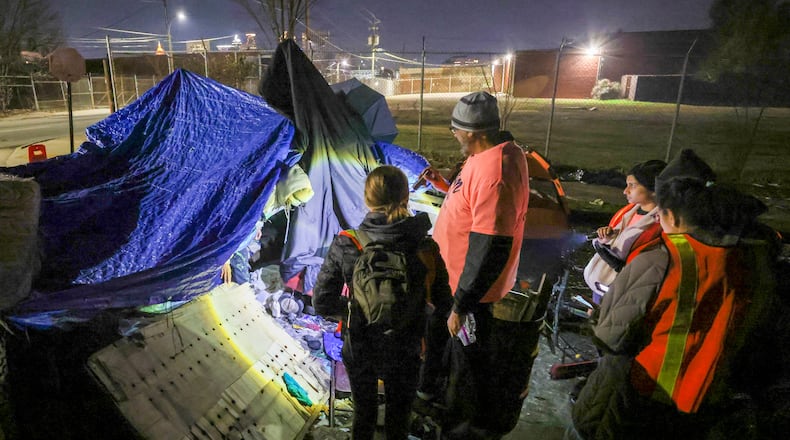A pared-down bill to address homelessness is now moving through the state Legislature after an earlier version prompted an uproar from advocates.
The bill calls for the state auditor to examine how Georgia is spending public dollars to reduce homelessness. It would also allow the state to designate camping areas for homeless people, among other things.
The legislation, sponsored by Republican Sen. Carden Summers, is the result of a Senate study committee that heard testimony on the homelessness crisis in Georgia. The committee made 26 recommendations, two of which are included in this piece of legislation. The State and Local Government Operations Committee late Monday approved the bill in a 4 to 3 vote. It will now need to move through the full Legislative process, and be signed by Gov. Brian Kemp before becoming law.
“This is a simple bill that will constitute a start, at least, on the homeless issue in Georgia,” he said.
Several advocates for the homeless opposed the bill, and condemned state officials for not doing more. They said a number of the committee’s recommendations that were not included in the bill could make real strides towards reducing the number of people living on the streets. Those recommendations include raising the state’s minimum wage or giving free state ID cards to people who are homeless.
Last year, Summers introduced a bill that would have banned permanent encampments and charged people who camped on public property with a misdemeanor. The bill was fiercely opposed by advocates who said it would effectively criminalize homelessness. Ultimately, the bill was not voted into law. Both the original and the current version of the bill backed by the Cicero Institute, a think tank that opposes prioritizing permanent, affordable housing for sheltering the homeless.
The city of Atlanta is doing just that. Partners for Home, Atlanta’s lead agency on homelessness response, has started a campaign to house 1,500 homeless people or families by December 2024. The agency is working to clear homeless encampments in Atlanta, while simultaneously moving the people living there into hotel rooms, shelters and more permanent housing. Partners for Home is teaming up with nonprofits around the city to reach its goals and has purchased a motel property that can be used for temporary stays.
Doug Shipman, president of the Atlanta City Council, said one core issue is the lack of places for people who live on the streets.
“We face a lack of housing, and a lack of shelter,” he said. “[The city] is working diligently on that.”
Summers said he would consider further amendments to the bill, but implored lawmakers to pass it in its current form.
“I have given on every level there is back to the opposition,” he said. “We are going to keep on where the bill is nothing but a piece of paper.”
About the Author
The Latest
Featured


